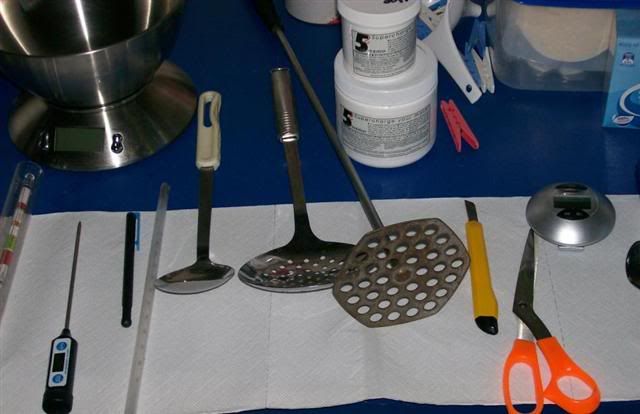I just read about this mash thing in JP's book and then found this thread. What has not been mentioned is that he also says that shocking the enzymes will cause off flavours later on. I always fill my mash tun with water so I can get the correct temperature before adding my grain whilst stirring. I was worried for a while that may be I should be following JP's method but it seems as if it is not important at all.....
He also says not to aerate the mash, I think by stirring too hard / too much.
I have been having problems with my last few batches of beer going from promising tasting/smelling at the start of fermentation to tasting very mirky/yeasty just after fermentation has finished and then getting gradually worse over the next few weeks, so I am just trying to eliminate all substandard parts of my process, including the mash. My PH is always around 5.2 as well..
Mashing...Wheeler v. Palmer
-
Bribie
Re: Mashing...Wheeler v. Palmer
Typical BIAB brews use up to 6:1 liquor to grist ratios and they work just fine. Also I understand that German Breweries using a Hochkurz infusion mash actually step up the temperature from stage to stage by just adding hot liquor, so the mash ends up quite thin towards the end. I pump mine up and down, without aerating it, with the thing in the picture that looks like an outsize potato masher, from a hardware store (used to stir paint I believe )

I don't know about GW, but Palmer is still trying to get to grips with the concept of BIAB and his online book, whilst very informative in many ways, is getting a bit dated - someone with the latest paper edition would be better informed on this than I am.

I don't know about GW, but Palmer is still trying to get to grips with the concept of BIAB and his online book, whilst very informative in many ways, is getting a bit dated - someone with the latest paper edition would be better informed on this than I am.
-
Blackjack
Re: Mashing...Wheeler v. Palmer
I just saw this old thread has popped up to the top and saw this response gives an excellent background answer to why the all the little amylases are OK for a minute or two while they are being mashed in, in hot liquor.delboy wrote:In their dehydrated state the enzymes are very resistant to thermal shocking, they need to be hydrated (solvated) before they would suffer damage, this isn't instantaenous by the time they become hydrated i would imagine the mash has been throughly mixed and the temperature will have dropped to the optimal mashing temp due to the addition of the colder grain to the strike water. For my money palmer is worrying unduly.hhoffman wrote:Being fairly new to brewing and Palmer's book, I'm quite familiar with his instructions. The reason for adding water to grain seems to be to avoid "shocking" the enzymes...
Thank you Delboy

